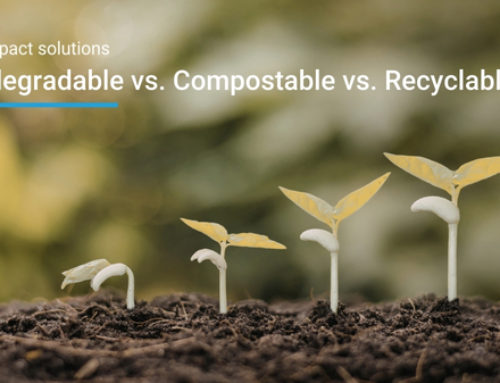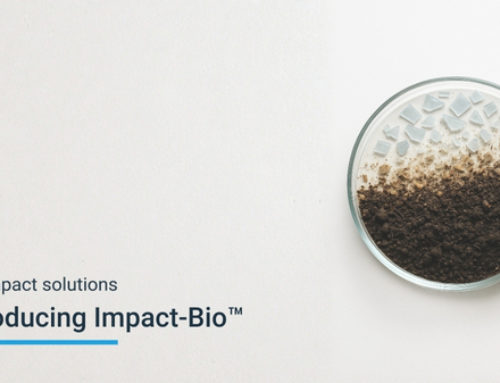At Impact Solutions, we are always on the cutting edge of materials science, whether it is polymer testing, innovation, or future-focused R&D. One exciting development which is rapidly gaining momentum is the field of nanopolymers. But what exactly are nanopolymers? Why should manufacturers, researchers, and innovators in the UK and beyond be paying attention?
What Are Nanopolymers?
Nanopolymers are a class of materials that incorporate polymer structures at the nanometre scale, typically less than 100 nanometres in size. A nanometre is one-billionth of a metre, meaning nanopolymers operate at a scale invisible to the human eye but can drastically impact a material’s mechanical, thermal, chemical, and electrical properties.
These tiny structures can take the form of nanofibres, nanoparticles, or nanosheets and are often blended into traditional polymers to enhance performance. Think of them as “supercharged” polymers, enabling materials to do more with less; stronger, lighter, and more functional.
Applications of Nanopolymers
The versatility of nanopolymers opens up a wide range of practical applications across sectors:
- Medical Devices & Drug Delivery: Biocompatible nanopolymers can be used for controlled drug release, targeted delivery, and even tissue engineering.
- Packaging: Nanopolymers can improve barrier properties, extend shelf life and enhance food safety;, this is particularly valuable in sustainable packaging innovation.
- Electronics: Enhanced conductivity and flexibility are ideal for wearable technology, flexible displays, and advanced sensors.
- Automotive & Aerospace: Nanopolymers exhibit increased strength and toughness while reducing weight, helping improve fuel efficiency and performance.
- Recycling: Certain additives can even aid in the recyclability of plastics.
Why Are Nanopolymers Important?
The main appeal lies in performance enhancement without major compromises.
For example, adding a small percentage of nano-scale clay or carbon nanotubes to a standard plastic can result in:
- Improved thermal stability
- Higher tensile strength
- Better chemical resistance
- Enhanced UV protection
This makes them especially valuable in demanding environments or where long-term durability is critical.
For manufacturers, that means potentially lower material usage, extended product life, reduced downtime, and reduced environmental impact. These are all vital for achieving net-zero goals and sustainable innovation.
Challenges and Considerations
Despite their promise, nanopolymers also bring challenges:
- Cost: Producing at scale remains more expensive than traditional polymers.
- Processing: Specialist equipment and processing conditions are often required.
- Regulation & Safety: The long-term environmental and health impacts of nanomaterials are still being studied, and regulations are evolving.
That’s why material testing, compliance, and innovation support is crucial for companies looking to adopt nanopolymer technology responsibly.
FAQ: Nanopolymers Explained
Q1: Are nanopolymers safe for the environment?
Nanopolymers are still being studied for their long-term environmental impact. While many are engineered to be stable and non-toxic, thorough testing and regulation are essential to ensure safe use, particularly when used in consumer products or packaging.
Q2: What industries benefit most from nanopolymers?
Key industries include medical devices, food packaging, electronics, automotive, aerospace, and advanced recycling. These sectors benefit from nanopolymers’ ability to enhance strength, flexibility, and barrier properties.
Q3: Can nanopolymers be recycled?
In many cases, yes. Some nanopolymer-enhanced plastics can be recycled using conventional methods, though specialised testing may be required to ensure compatibility with existing recycling streams. Some studies have even shown an increase in recyclability, due to improved separation.
Impact Solutions: Supporting Innovation in Polymer Science
As a leading UKAS-accredited laboratory (no. 0402), Impact Solutions offers end-to-end support for companies exploring the use of nanopolymers and advanced plastics. Whether you are developing new formulations, assessing material performance, or investigating recyclability, our expert team is here to help.
Nanopolymers represent a transformative step in material science, offering powerful benefits in strength, sustainability, and functionality. As the technology matures, we expect them to play a key role in the next generation of plastic products and polymer-based systems.
Looking to implement nanopolymers safely and responsibly? We can help.
Get in touch with the team at Impact Solutions today.
Follow us on LinkedIn, Facebook and Instagram for more industry insights, as well as regular updates on our services.





